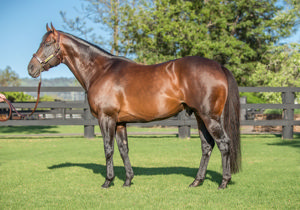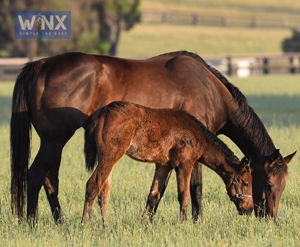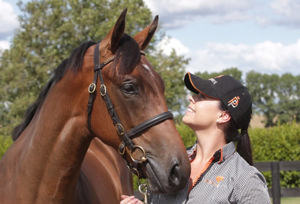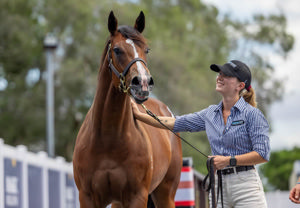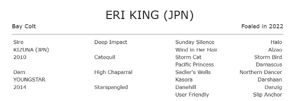Thoroughbred Breeders Australia (TBA) and AgriFutures Thoroughbred Horses Program are pleased to announce that a long-term research project to minimise foetal loss in thoroughbreds will reopen in April.
The project – which enables breeders to access free post-mortems for aborted foetuses – will now have six participating vet clinics across NSW, VIC and QLD.
The results from these post-mortems will help breeders monitor and avoid possible abortion clusters, while also providing further information that will allow breeders to better manage mares and improve the chances of a successful pregnancy.
These results from each post-mortem will be anonymised and put into a central database to be reviewed and analysed for trends and risks.
Leading Hunter Valley veterinarian, Dr Joan Carrick, has been a driving force behind the project and its expansion.
She said: “It’s great to see the project continue to grow. Internationally there are no other similar initiatives that are pushing to reduce foetal loss across the board long-term. The goal is in the years to come to slowly decrease abortion numbers and in the process aid all breeders.
“Each year we’ve seen more and more participation from the breeders and we’re looking forward to an even bigger season. In time, it’s my hope that this becomes the normal and that all abortions nationally can be assessed with a full post-mortem.”
Funded through the AgriFutures Thoroughbred Horses Program, there were 93 free post-mortems conducted last year. TBA’s role in the project is the running of all the communications and administration, including payments and liaising with clinics and breeders.
In addition to the three clinics which participated last year, Scone Equine Hospital, Goulburn Valley Equine Hospital and Darling Downs Vets, this year has also seen Hunter Equine Centre (NSW), Bendigo Equine Hospital (VIC) and Scenic Rim Veterinary Services (QLD) sign up to become part of the project.
TBA Projects Coordinator, James Murray, said: “The expansion this year is exciting for all breeders, particularly those in Victoria and Queensland. With Bendigo Equine Hospital and Scenic Rim Veterinary Services coming onboard it reduces the travel time for a lot of breeders which will hopefully lead to greater participation.
“This is a project will directly benefit breeders and allow for better mare management, but also in time, to really make a difference as Dr Carrick and her team continue to build a confidential database with the results.”
Each clinic has its own specific procedure for dropping off a foetus but as a general rule you must:
1. Contact the clinic first to make sure they haven’t exceeded their quota for funded post mortems and that your foetus fits the eligibility criteria.
2. Sign a consent form – a vet will not start a post-mortem without this.
3. Double-bag the foetus using heavy duty garbage bags.
4. Keep foetus at a temperature between 4-10 degrees Celsius. To do this, it is recommended that the double-bagged foetus be placed in a large plastic j container or bin with ice beneath it and on top.
5. Deliver the aborted foetus within 24 hours of discovery
Murray added, “I urge all breeders who haven’t done so already in previous seasons to take full advantage of this opportunity. Please reach out to either the TBA or participation clinics if there are any questions.”
Please note there is a limited number of funded post-mortems available each season.
TBA Release
The project team thanks AgriFutures Australia for funding and supporting this research. For more information please see www.agrifutures.com.au.

